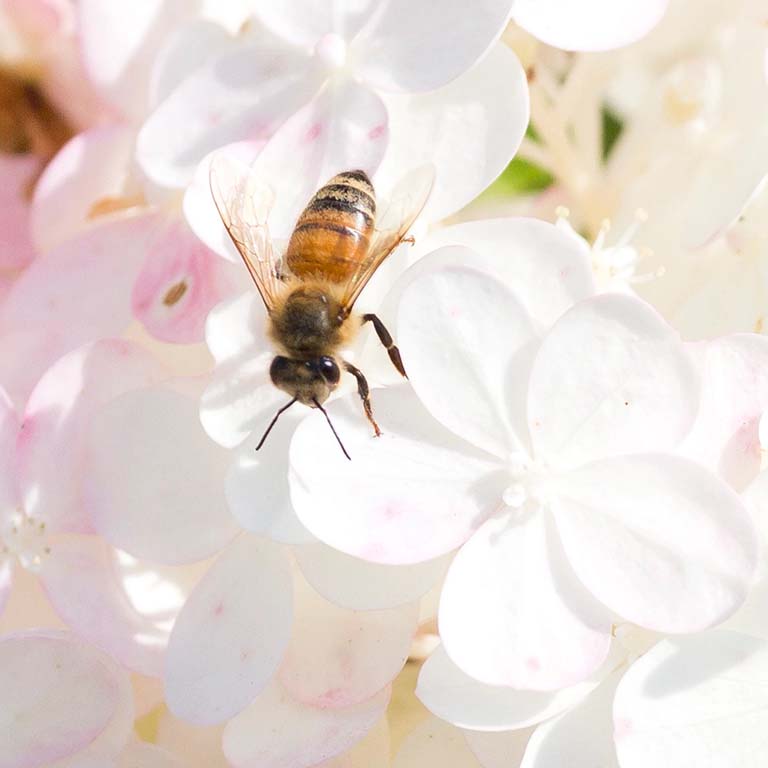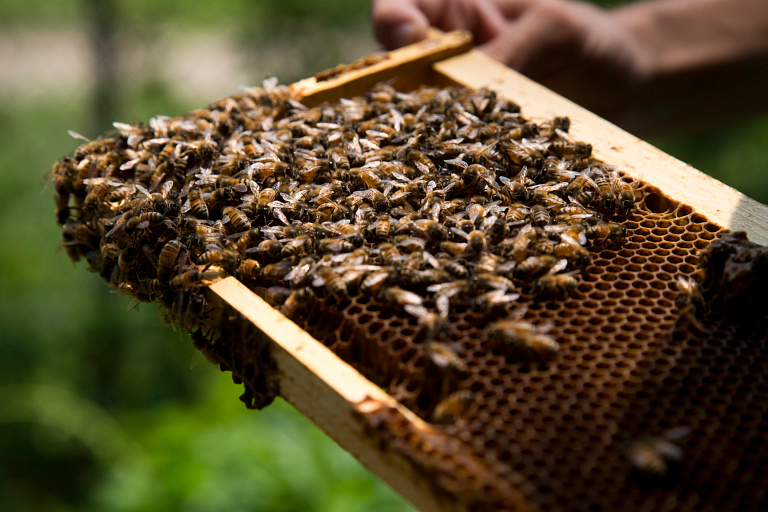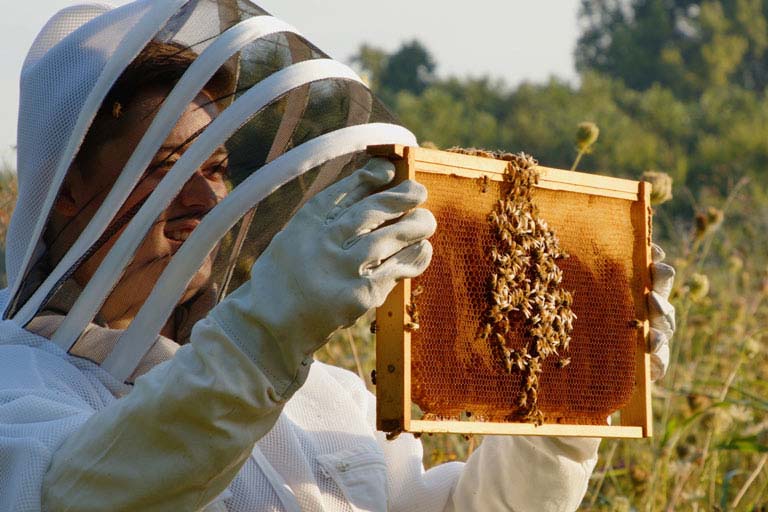Indiana University researchers have identified a specific bacterial microbe that, when fed to honey bee larvae, can reduce the effects of nutritional stress on developing bees—one of the leading causes of honey bee decline.
Their findings were recently published in the International Society for Microbial Ecology Journal.
Humans rely on honey bees for food security. Because they will pollinate almost anything, honey bees are extremely useful for agriculture. But over the past few decades, the honey bee population has experienced dramatic declines caused by the effects of multiple stressors, the most pervasive of which is limited nutrition. Beekeepers in the United States reported losing 40.5 percent of their managed colonies between 2015 and 2016 alone, according to a national survey.
"The effects of poor nutrition are most damaging in the developing larvae of honey bees, who mature into workers unable to meet the needs of their colony," said Irene Newton, a professor in the IU Bloomington College of Arts and Sciences' Department of Biology, who led the study. "It is therefore essential that we better understand the nutritional landscape experienced by honey bee larvae."
Newton said honey bees need to collect pollen and nectar from a variety of plants and flowers to help their colonies stay healthy throughout the year. But many bees in the U.S. lack this floral diversity.
"We've changed the way we use our land in the U.S.," Newton said. "Now we have tons of monoculture crops like corn, which are wind pollinated and therefore no use to bees, covering acres and acres of land. Other crops that bees do pollinate are grown in monoculture as well, limiting the options for bees.
"If you limit yourself to only eating one thing, that's not healthy for you. You have to have a broad diet that will help fulfill all of your nutritional needs. Bees are the same way."
Honey bee larvae are fed by their sister bees. Their diet consists of foraged ingredients such as nectar and pollen, as well as royal jelly—a bee glandular secretion that is complex and nutrient rich. If larvae are destined to be queens, they will eat royal jelly their whole lives. If they are workers, their diets will shift to nectar and pollen after a few days.



 The College of Arts
The College of Arts